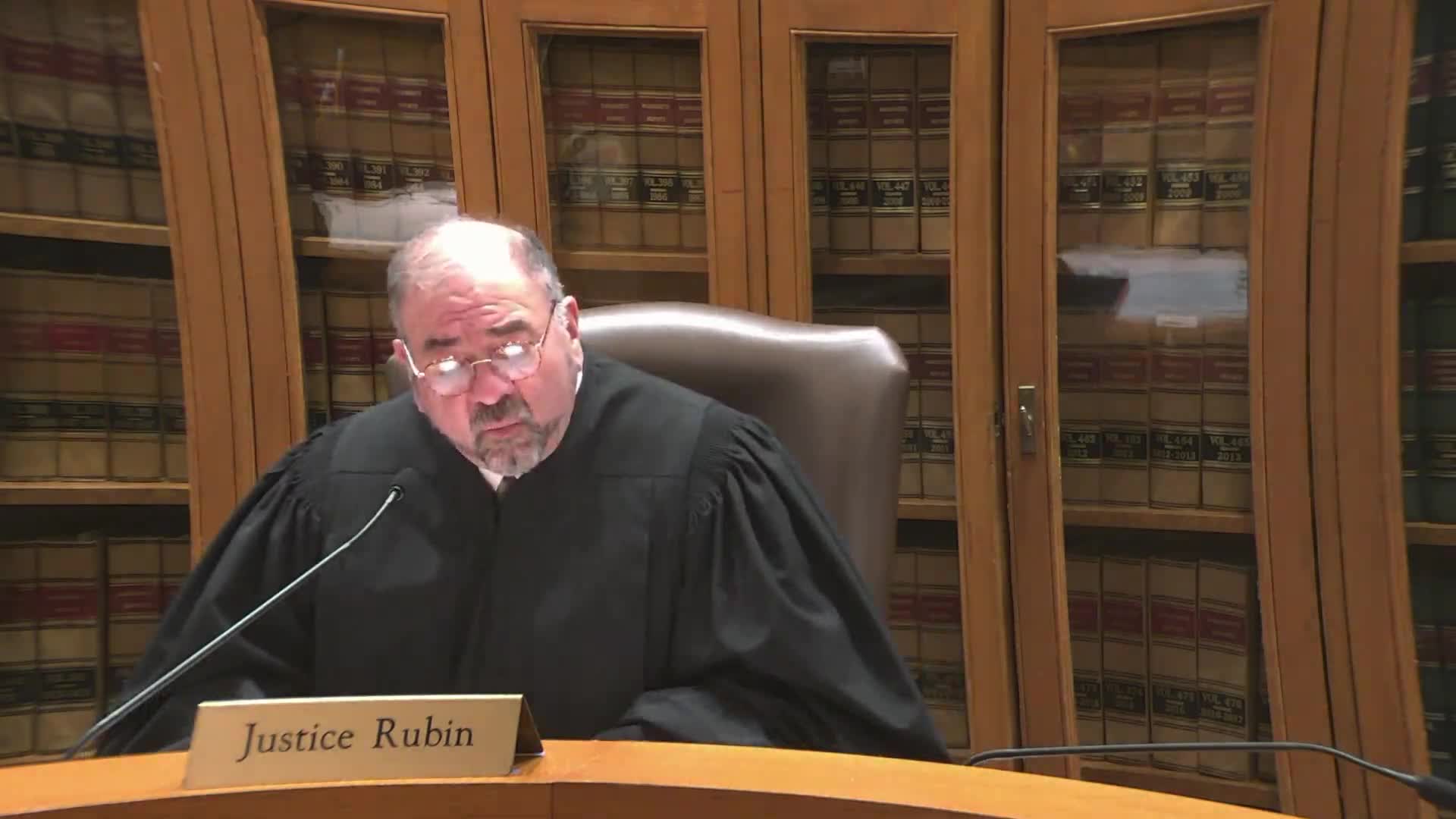Court Hears Commonwealth v. Hayes Case on Witness Intimidation and Free Speech
October 03, 2025 | Judicial - Appeals Court Oral Arguments, Judicial, Massachusetts
This article was created by AI summarizing key points discussed. AI makes mistakes, so for full details and context, please refer to the video of the full meeting. Please report any errors so we can fix them. Report an error »

On October 3, 2025, the Massachusetts Appeals Court convened to hear oral arguments in two significant cases, Commonwealth v. Hayes, which raised critical questions about the boundaries of free speech and the legal definitions of intimidation and harassment. The court, presided over by Justices Rubin, Shin, and Singh, focused on the appeal presented by attorney Christopher DeMaio on behalf of Michael Hayes.
DeMaio outlined four key issues in the appeal, emphasizing the first point regarding the sufficiency of evidence for an intimidation conviction that resulted in a prison sentence. He argued that the evidence, specifically Exhibit 20, should not be classified as a true threat under the First Amendment. DeMaio contended that while the exhibit may be deemed offensive or juvenile, it does not meet the legal standard of a serious expression of intent to commit violence, as established in the landmark case Virginia v. Black.
The implications of this argument are significant, as they touch upon the delicate balance between protecting free speech and addressing criminal behavior. DeMaio asserted that any communication that falls under the First Amendment cannot be punished unless it fits into a narrowly defined category of unprotected speech. He further argued that harassment, which often involves non-verbal actions, could be subject to different legal standards, but intimidation charges related to communication must adhere to First Amendment protections.
The court also examined precedents, including the 2001 case Commonwealth vs. Joe, which involved a flyer deemed punishable despite lacking explicit threats. DeMaio highlighted that the legal landscape has evolved since then, particularly following the Virginia v. Black decision, which clarified the definition of true threats.
As the court deliberates on these cases, the outcome could have far-reaching consequences for how intimidation and harassment are prosecuted in Massachusetts, particularly in relation to free speech rights. The discussions from this meeting underscore the ongoing legal challenges in defining the limits of expression in a society that values both safety and freedom of speech. The court's decision will likely set important precedents for future cases involving similar issues.
DeMaio outlined four key issues in the appeal, emphasizing the first point regarding the sufficiency of evidence for an intimidation conviction that resulted in a prison sentence. He argued that the evidence, specifically Exhibit 20, should not be classified as a true threat under the First Amendment. DeMaio contended that while the exhibit may be deemed offensive or juvenile, it does not meet the legal standard of a serious expression of intent to commit violence, as established in the landmark case Virginia v. Black.
The implications of this argument are significant, as they touch upon the delicate balance between protecting free speech and addressing criminal behavior. DeMaio asserted that any communication that falls under the First Amendment cannot be punished unless it fits into a narrowly defined category of unprotected speech. He further argued that harassment, which often involves non-verbal actions, could be subject to different legal standards, but intimidation charges related to communication must adhere to First Amendment protections.
The court also examined precedents, including the 2001 case Commonwealth vs. Joe, which involved a flyer deemed punishable despite lacking explicit threats. DeMaio highlighted that the legal landscape has evolved since then, particularly following the Virginia v. Black decision, which clarified the definition of true threats.
As the court deliberates on these cases, the outcome could have far-reaching consequences for how intimidation and harassment are prosecuted in Massachusetts, particularly in relation to free speech rights. The discussions from this meeting underscore the ongoing legal challenges in defining the limits of expression in a society that values both safety and freedom of speech. The court's decision will likely set important precedents for future cases involving similar issues.
View full meeting
This article is based on a recent meeting—watch the full video and explore the complete transcript for deeper insights into the discussion.
View full meeting
